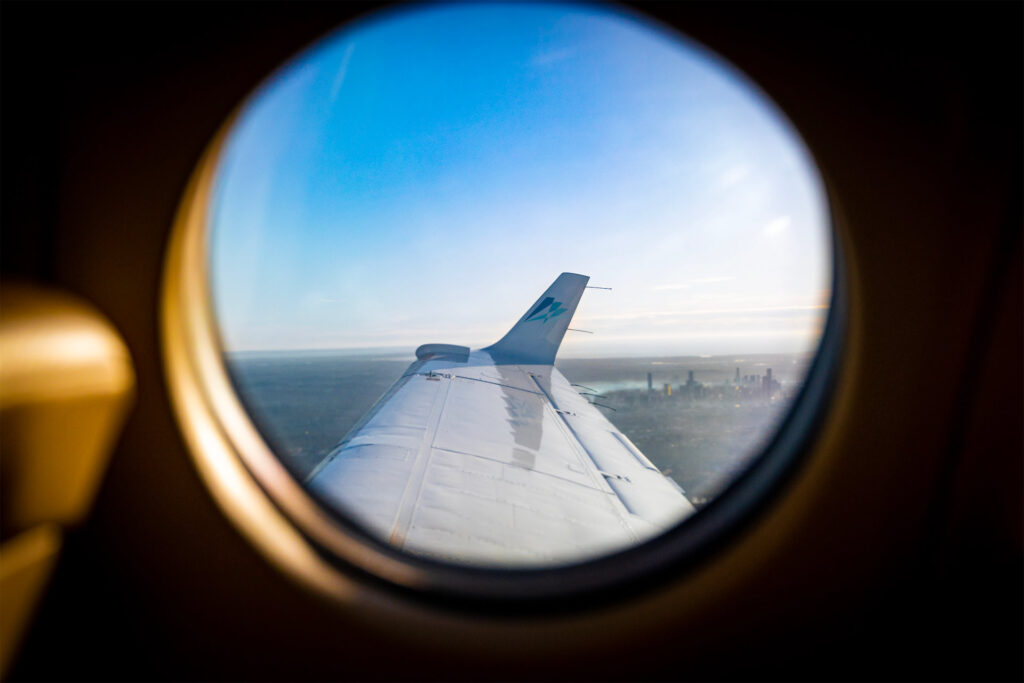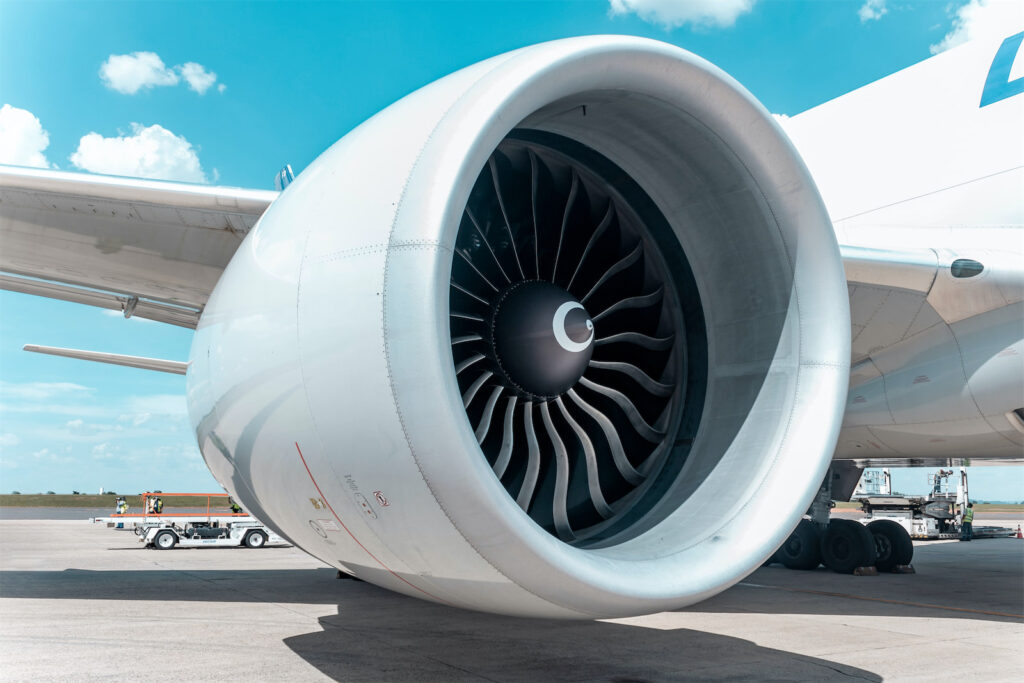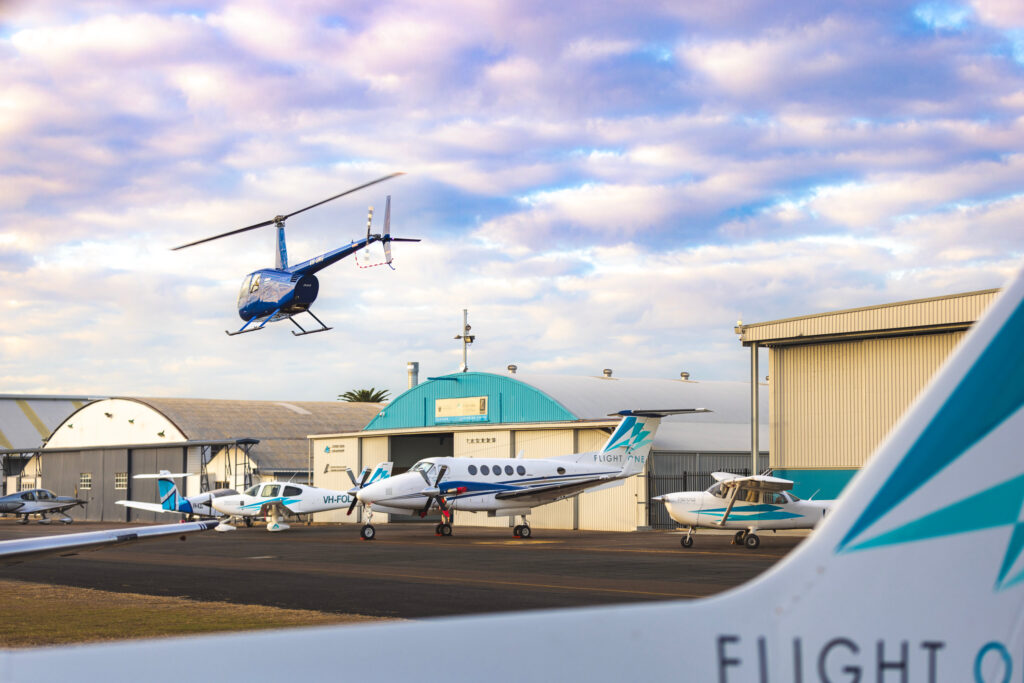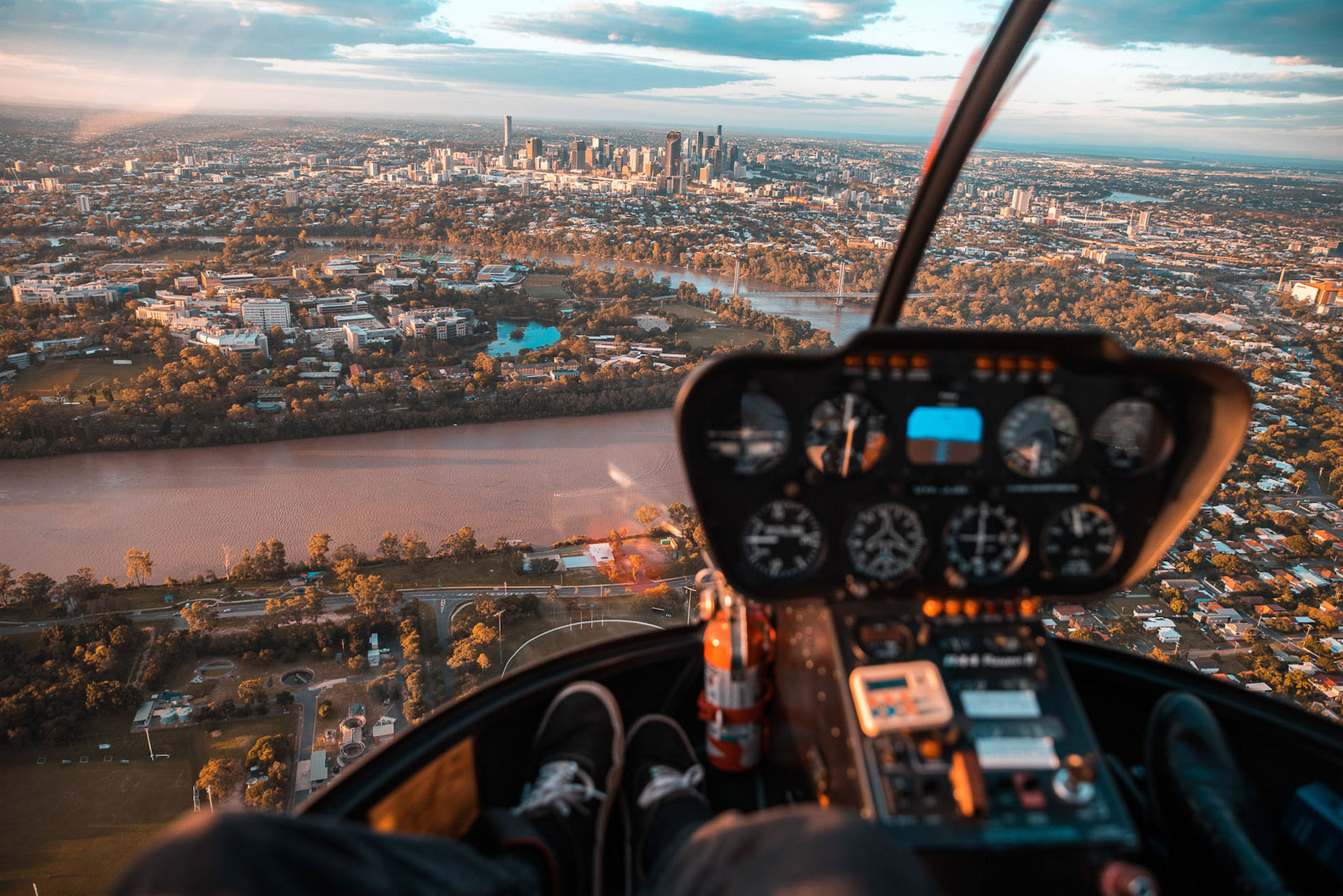Course Details
| Qualification |
AVI50322 Diploma of Aviation (Commercial Pilot Licence – Helicopter) |
| Training Provider |
Flight One Australia (RTO 31285 | CRICOS 01302M)
trading as Flight One School of Aviation |
Third Party CASA Approved
Helicopter Flight Training Provider |
Authorised third party training provider V2 Helicopters Flight Training
Hangar 219B, Qantas Ave, Archerfield Airport, Brisbane QLD 4108 |
| Duration / Mode |
This course is 6 months full time, or 1 year part time in duration with required regular on-campus attendance. |
| VET Student Loans |
This course is VET Student Loans approved.
Please view Tuition Fee details and Payment Schedules below. |
| International Students |
This course is not available for international student enrolments. |
Introduction
Flight One School of Aviation has the privilege of being a CASA certified Flight Training Organisation and a CRICOS and VSL approved Registered Training Organisation (RTO). These combined approvals allow us to deliver theory and practical training and assessments to domestic and international students toward Australian pilot licences through formal Australian Qualifications Framework diplomas and additionally, offer VET Student Loans as a payment option for domestic students.
Training is conducted at Archerfield Airport in Brisbane, by experienced aviation instructors utilising authentic training equipment and well maintained aircraft.
As has been the case for over 40 years, Flight One Australia’s ethos revolves around diligent attention to aviation industry safety and quality standards. Our courses are customer service oriented and our syllabus provides an authentic training experience. To achieve the level of proficiency expected of our graduates, pilot trainees are expected to maintain attendance and course progress befitting a professional pilot.
As part of a broader aviation group that includes VIP and business chartering, airport FBO services and CASA approved aircraft maintenance and repair operations, we are able to offer a genuinely industry driven, innovative programmes with integrated theory and practical training to ensure that you are job ready upon graduation. Please visit About Us to learn more about our flight school and the broader Tisdall Aviation Group.
The course is open to students with no industry experience and is delivered face to face on campus supported by online learning facilities and airborne activities where relevant. We will help you build the skills and experience to ignite a lifelong career in aviation, and help you to progress through to a dream role – whether your dream is in charter, freight, general aviation or flying with a range of specialty helicopter services.
About the Commercial Helicopter Industry
Commercial pilots carry out the safety critical activity of flight for reward in support of a wide range of clients. The vast array of activities undertaken include charter, aeromedical, passenger transport, photography and search and rescue.
Commercial helicopter pilots have a wide range of career options available to them. They can pursue roles in various sectors, including aerial firefighting, search and rescue operations, law enforcement, medical evacuation (HEMS), offshore oil and gas transportation, tourism and sightseeing flights, and aerial photography. Additionally, opportunities exist in executive transport, where they can serve as private or corporate helicopter pilots. Some commercial helicopter pilots also choose to become flight instructors, sharing their expertise with aspiring aviators. The diverse range of career paths ensures that commercial helicopter pilots can find opportunities that align with their interests, skills, and career goals within the dynamic field of rotary-wing aviation.
Outcomes
Our CPL-H programme is designed around the concept of licence readiness – providing each graduate with the CASA theory and associated examinations necessary to achieve a licence outcome.
To be eligible to apply for a CASA Pilot Licence, graduates must also meet CASA’s stipulated flight tests conducted by CASA appointed testing officers.
Training is conducted online and at Archerfield Airport in Brisbane, Australia, via face to face classroom training by experienced flight instructors utilising an extensive training fleet and simulators.
Assessments for this programme are conducted and invigilated in accordance with the requirements of the Civil Aviation Safety Authority (CASA) and the Australian Skills Quality Authority (ASQA). Assessments may include, but are not limited to, multiple choice, short answer, short essays, group work under observation and practical aviation assessments (flight tests).
Helicopter Training Facilities*
Our library of publications and modern briefing room caters exceptionally well to our students. In addition to theory training in the evenings, we offer free coffee and tea to all our customers. The ample free parking directly in front of the building simply adds to the convenience of learning with us. We are confident in our ability to provide you with the best possible environment to achieve your goals.
- Air Conditioned Classrooms
- Kitchen facilities
- Quiet Study Rooms
- Perfect learning environment
*Note: This information pertains to facilities provided on campus at V2 Heli, Hangar 219, Qantas Ave Archerfield Airport which is approximately 5 min walk from the main Flight One School of Aviation campus.
Recognition For Prior Learning (RPL)
Applicants with well documented previous training and/or experience may be eligible for Recognition for Prior Learning toward Units of Competency included in this qualification. Please advise at the time of application if you are seeking RPL.
Delivery Mode
Class numbers are kept intentionally small, usually between 4 to 6 students, to ensure a high standard of training is delivered personally to each student.
To achieve a higher level of flexibility for our trainees, this course is mixed mode and is delivered through a combination of:
- self-guided study of the theoretical principles that underpin flight and the Commercial Pilot Licence using online training resources
- instructor-lead briefings one-on-one, or in small groups, to reinforce, check and approve theory knowledge
- self guided and instructor-lead flight planning
- instructor-lead flying lessons to achieve practical competencies
- flight tests and theory exams carried out by the Civil Aviation Safety Authority
Flight lessons will be scheduled at a sufficient pace to remain within the study periods and must be attended once booked. Fast tracking is permitted but must be approved by the Chief Flight Instructor and the Head of School and are dependent upon trainee aptitude and progress as well as availability of resources and instructors.
Students undertaking this course are expected to wear the college uniform provided.
Course Inclusions
Basic Flight Training
- Helicopter Controls & Systems: Understand the fundamental components and systems of helicopters, including rotor systems, flight controls, and avionics.
- Basic Maneuvers: Master essential flight maneuvers, such as hovering, takeoffs, and landings, building a strong foundation in helicopter handling.
- Aerodynamics: Learn the principles of helicopter aerodynamics, including lift, drag, and how different factors affect flight performance.
Advanced Flight Techniques
- Navigation & Instrumentation: Essential for flying in various weather conditions and airspace.
- Emergency Procedures: Develop critical skills for handling emergency situations, including engine failures, autorotations, and other in-flight emergencies.
Operational Knowledge
- Meteorology: Understand weather patterns and their impact on flight operations, enabling you to make informed decisions during pre-flight planning.
- Air Law & Regulations: Familiarize yourself with aviation laws, regulations, and safety protocols, ensuring compliance with industry standards.
- Flight Planning & Management: Learn to create detailed flight plans, manage fuel calculations, and optimize flight routes for efficiency and safety.
Practical Experience
- Solo Flights: Build confidence and independence with solo flights, applying your training in real-world scenarios under the supervision of experienced instructors.
- Cross-Country Navigation: Plan and execute cross-country flights, developing your skills in long-distance navigation and flight management.
- Communication & Coordination: Enhance your communication skills with air traffic control and other pilots, ensuring smooth and safe operations.
Professional Development
- Career Preparation: Receive guidance on building a professional resume, preparing for interviews, and exploring various career paths in the aviation industry.
Flying Hours
You can expect to gain at least 108 hours of logged flight time.
- 85 Hours in the Robinson R22
- 20 Hours in the Robinson R44
- 6 hours in the HELIMOD Mark III Flight Simulator (Non-Certified)
- 2 Hour CPL(H) Flight Test
- 1 Hour Low-Level Flight Test
International Students
This course is not open for international student enrolments.
General Entry Criteria
To receive approval to enrol in this qualification, applicants must:
- be at least 18 years old at the planned commencement date; and
- have completed Australian senior high school or equivalent; or
- successfully pass the prescribed Language, Literacy and Numeracy test; and
- have a native or advanced level of English.
Flight School Entry Criteria
To receive approval to undertake flight training, applicants must also:
- successfully pass the Symbiotic ADAPT pilot aptitude test; and
- successfully pass a discussion style interview with the Head of School if required.
Civil Aviation Safety Authority (CASA) Criteria
To receive approval to undertake flight training for this course, applicants must:
Note: An ARN is a simple process that involves corresponding with CASA and obtaining a unique CASA identifier. Please refer to the Aviation Reference Number (ARN) section on CASA’s website for instructions.
- be eligible to obtain a CASA Class 1 Aviation Medical Certificate; and
Note: You may not be able to achieve the Commercial Pilot Licence outcome of the course if you are unable to gain and hold a CASA Class 1 Medical Certificate. It is therefore recommended that you get your Class 1 Medical Certificate prior to commencement to avoid the risk of unexpected medical issues presenting a barrier later in your training. If you have not received your Class 1 Medical Certificate from CASA by the commencement date, you may commence if you wish to, but you may be asked to present alternative medical clearance, and sign additional documentation to confirm that you understand the implications, and take full responsibility for the decision. Details and further information are available from CASA – https://www.casa.gov.au/licences-and-certificates/aviation-medicals/medical-certificates.
- be eligible to obtain an Australian Aviation Security Identity Card (ASIC); and
Note: Obtaining an ASIC requires police clearance by way of a background criminal check that can include:
-
- National police check
- Australian Criminal Intelligence Commission criminal assessment
- Australian Security Intelligence Organisation national security assessment
- Department of Home Affairs Visa Entitlement Verification Online (VEVO) system check
If you have significant criminal history, you may not be eligible to hold an ASIC.
ASIC applications require support for operational needs. This is provided to you by us after your successful enrolment along with instructions for lodging an ASIC application.
- have sufficient English language ability to pass the CASA Aviation English Language Proficiency (AELP) assessment; and
Note: CASA has requirements for the minimum standards of English language. Trainees will undergo testing to gain CASA certification (at a minimum of level 4) of their aviation English standard during the early stages of the course.
- Have aeronautical knowledge and experience evidenced by CASA documentation and/or licencing for the proposed training stage, if relevant.
You are expected to present a valid Class 1 medical certificate at commencement of your course unless authorised in writing by the RTO; we reserve the right to delay commencement if you are not able to present certification at commencement. This medical certification suitable to your level of training must remain valid for the duration of the course and is the responsibility of the student to maintain.
Additional Entry Criteria for VET Student Loans
Domestic students planning to access a loan via the Australian Government VET Student Loan scheme must:
- provide evidence of meeting the VSL citizenship eligibility criteria; and
- provide an Australian senior high school graduation certificate and academic results; or
- pass the prescribed Language, Literacy and Numeracy test.
There are specific criteria for use of the VET Student Loans scheme. Please visit our VSL Page for further details.
Additional Entry Criteria for International Students
This course is not registered for International Student enrolments.
The RTO reserves the right to make reasonable adjustments where sufficient grounds exist.
Domestic Student Tuition Fees
- Full Tuition Fee for this qualification: $96,467
- Tuition fees are payable in instalments
- This course is approved for VET Student Loans
- Additional (Non-Tuition) Fees apply. Details below.
- All amounts are in Australian Dollars
VET Student Loans (VSL)
This course is approved for the Commonwealth Government VET Student Loan scheme with the minimum possible out of pocket “gap” fee to pay upfront.
- Full Tuition Fee for this qualification: $96,467
- VSL Indexed Loan Cap: $96,467
- Maximum Loan Cover: $96,467
- Total Gap Fee you will need to pay: $0
All amounts are in Australian Dollars. VET Student Loan availability is subject to eligibility requirements and creates a debt that must be repaid to the Commonwealth. Please see the VSL Tuition Fee Schedules below and visit our VSL Information Page for guidance and instructions if you are planning to use VET Student Loans to assist with the payment of your tuition fees. You can also view the relevant policies on our Policies & Procedures page. VSL payment schedules for each intake are published prior to commencement and can be viewed below. Some expenses can not be covered by a VET Student Loan. Details below.
Domestic Student Tuition Fees – Self Funded
If you do not wish to, or are not eligible to use VSL to pay your tuition fees, you are welcome to pay the Full Tuition Fee for this qualification directly (self-funding) on an instalment schedule. You can also mix the use of VET Student Loans and self funded payments.
Instalments & VSL Schedules
Regardless of the method you use to fund your payable tuition fee payments (VSL gap or self-funding) the payable amount will be scheduled into small regular instalments through a payment plan that will be detailed prior to commencement. Following is the standard VSL Payment Schedule. Schedules may change at each intake so the following samples are provided as a guide only. Specific schedules for each intake are available below.
Full Time VSL Schedule (Generic Sample)
| VET UNIT OF STUDY |
CODE |
DURATION |
TUITION FEE |
EFTSL |
| Helicopter Familiarisation |
FT01 |
16 |
$10,323 |
0.114 |
| Circuits |
FT02 |
16 |
$10,323 |
0.114 |
| Emergencies |
FT03 |
16 |
$7,823 |
0.114 |
| Circuit Consolidation |
FT04 |
16 |
$7,823 |
0.114 |
| Advanced Emergencies |
FT05 |
16 |
$7,836 |
0.114 |
| Training Area |
FT06 |
15 |
$7,836 |
0.107 |
| Navigation |
FT07 |
15 |
$11,150 |
0.107 |
| Advanced Navigation |
FT08 |
10 |
$8,566 |
0.071 |
| Low Level |
FT09 |
10 |
$9,244 |
0.071 |
| Flight Consolidation |
FT10 |
10 |
$15,543 |
0.071 |
| TOTAL |
|
140 days |
$96,467 |
1.000 |
Part Time VSL Schedule (Generic Sample)
| VET UNIT OF STUDY |
CODE |
DURATION |
TUITION FEE |
EFTSL |
| Helicopter Familiarisation |
FT01 |
27 |
$10,323 |
0.102 |
| Circuits |
FT02 |
27 |
$10,323 |
0.102 |
| Emergencies |
FT03 |
27 |
$7,823 |
0.102 |
| Circuit Consolidation |
FT04 |
27 |
$7,823 |
0.102 |
| Advanced Emergencies |
FT05 |
27 |
$7,836 |
0.102 |
| Training Area |
FT06 |
27 |
$7,836 |
0.102 |
| Navigation |
FT07 |
27 |
$11,150 |
0.102 |
| Advanced Navigation |
FT08 |
25 |
$8,566 |
0.095 |
| Low Level |
FT09 |
25 |
$9,244 |
0.095 |
| Flight Consolidation |
FT10 |
25 |
$15,543 |
0.095 |
| TOTAL |
|
264 days |
$96,467 |
1.000 |
VET Student Loans Tuition Fee Schedules
14 SEP 2026 (CPL-H) Part Time >>
27 JUL 2026 (CPL-H) Full Time >>
20 JUL 2026 (CPL-H) Part Time >>
20 APR 2026 (CPL-H) Part Time >>
09 FEB 2026 (CPL-H) Full Time >>
28 JAN 2026 (CPL-H) Part Time >>
10 NOV 2025 (CPL-H) Part Time >>
27 OCT 2025 (CPL-H) Part Time >>
22 SEP 2025 (CPL-H) Part Time >>
01 SEP 2025 (CPL-H) Full Time >>
07 JUN 2025 (CPL-H) Full Time >>
07 APR 2025 (CPL-H) Full Time >>
OCT 2024 (CPL-H) Full Time >>
JUL 2024 (CPL-H) Full Time >>
JAN 2024 (CPL-H) Full Time >>
Additional (Non-Tuition) and Other Fees
There are costs associated with this qualification that are not included in the tuition fees (and therefore, in accordance with ASQA regulations, are not eligible for VET Student Loans cover). It is important to be financially prepared for these costs to reduce the likelihood of disruptions to your training. Costs not covered by the tuition fee may include:
- CPL-H Material Fees ($3,259)
Material fees cover various training materials required throughout the course. Payment of material fees is mandatory and can only be adjusted with permission from a senior Flight Instructor. Enrolment is not confirmed until the material fee payment due at acceptance has been paid. Material costs MAY CHANGE and various items may need to be added, replaced and/or updated as you move through the course. We provide as much guidance as practicable in relation to non-tuition fees but ultimately it is the trainees responsibility to ensure that all stipulated materials are acquired and made available for training in a timely manner.
Please note that a $1500 deposit on Material Fees will be due upon accepting an offer of a place in the course, with the balance due four weeks prior to course commencement.
- Pilot Uniform: Students will be expected to purchase a pilot uniform. Prices vary. Please enquire for details.
- Pilot Headset: As soon as practicable, pilot trainees will need to purchase, from their preferred supplier, a pilot headset and carry case of an acceptably professional standard. Our recommendation is the BOSE A30 (latest model) which retails for $2,100. V2 Heli is an authorised BOSE distributor and can assist you further with arrangements.
- Aviation Medical Examinations: Students commencing this qualification are required to undertake medical examinations specified and regulated by the Australian Civil Aviation Authority (CASA). Medical examinations are arranged by the student at the student’s expense. Students are required to FINALISE and hold their Class 1 medical documentation from CASA by commencement day. Students who have not received their medical will be asked to move to the next intake. Further information will be provided in the formal Letter of Offer. We also recommend that you consult CASA’s website here: www.casa.gov.au/licences-and-certificates/aviation-medicals/medical-certificates/classes-medical-certificate. CASA Designated Aviation Medical Examiners can be located here: www.casa.gov.au/content-search/medical-and-eye-examiners. Medical examination and associated fees are not included in the tuition fees (and are therefore not covered by VET Student Loans).
- Aviation Security ID Card (ASIC): All students will be required to successfully apply for an ASIC costing approximately $230. This is done through a third party and assistance will be provided during the onboarding stage prior to commencement.
- Remedial Activities: This includes briefings, flights, and other training events that you need to participate in because you have not met the required standard of competency.
- Remedial Flights: Flight lessons that need to be repeated as a result of a competency not being achieved are called Remedial Flights. Trainees should expect that from time to time, remedial flights may be necessary, or may wish to voluntarily repeat a flight. Fees associated with remedial flights will need to be paid at the time of booking and can not be covered by VET Student Loans. The cost of remedial flights depend on the nature and length of the repeated lesson and can range from $480 to over $2,000 each. It is therefore essential that trainees have some savings or credit set aside for remedial flights to avoid the possibility of training being suspended.
- Exams: Additional or repeated exams (including IREX theory exam) are not included in the tuition fees (and are therefore not covered by VET Student Loans).
- Flight Training Cancellation Fee: Cancellations made within 24 hours of the scheduled session leave either an aircraft, an instructor, or both subsequently idle. This results in a delay to your own training and disadvantages our other clients who may have usefully utilised that instructor’s/aircraft’s availability. Should you have to cancel a Briefing, Flight or Simulator session please do so with no less than 24 hours notice prior to the session, otherwise a Cancellation Fee may be charged. The cancellation fee is currently $132.
- Options / Upgrades: Pilot trainees who request additional optional flights and/or aircraft upgrades will incur additional fees that are not included in the tuition fees (and are therefore not covered by VET Student Loans).




